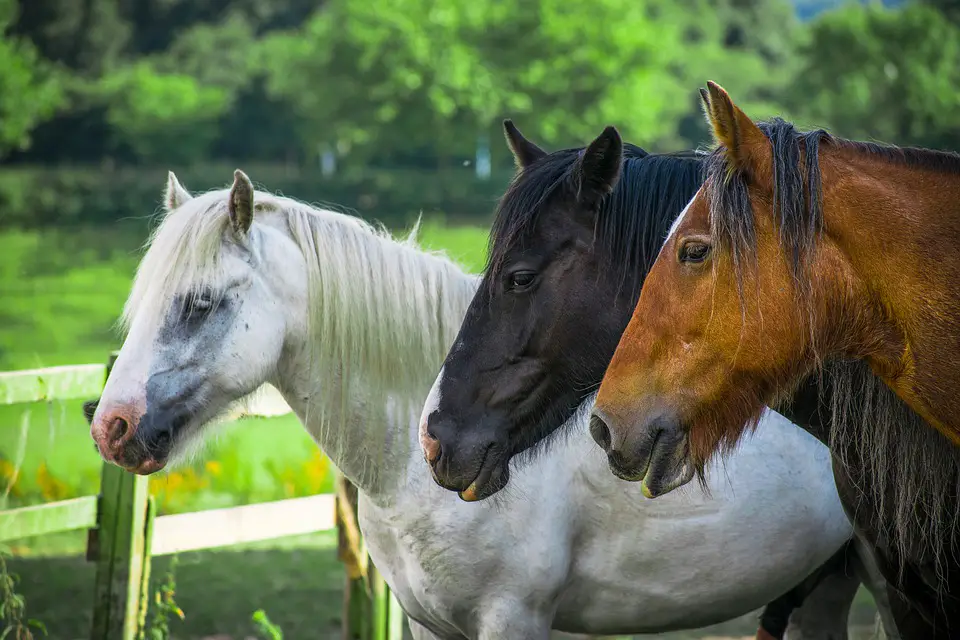Last Updated on May 19, 2020 by Allison Price
It takes the risk to start any kind of business and equine businesses are not exempted. When it comes to breeding horses, there is a lot involved. Besides running a business, you will also be orchestrating a very delicate process. It is a process that involves live animals and their livelihood. Even if you have considerable experience with horses… before starting a breeding farm you would need a particular set of knowledge and skills. It lets you know what you need to keep in mind.
- A horse-breeding farm is especially difficult to get off the ground. Breeding takes time and it is always best to start off small.
- You need to determine what supplies and equipment you need. What sort of capital you need to get and keep it.
- How you expect to pay for and keep up with licenses and other permits.
- And what you have to do so your business won’t fail.
Aside from figuring out how much grain and hay you will need per year or how much insurance will cost. Make sure you find a piece of land that you can develop into something else if your breeding business falls. Can your farmland house a different kind of farm? Could it support a golf course or even a bed and breakfast? It helps to have a fallback plan in the event your initial try falls through. That way you can still pursue something with the land you have. This is why breeding a horse as your business won’t be an easy one.
Can a Horse Breeding business pass as a good investment?
It depends. Although it’s very difficult, it isn’t impossible.
What if you own 1 or 2 horses for the least? Can you make money? Yes, but only under the right circumstances.
Step 1:
You need to be smart and disciplined. If you have your own place, work hard at it. Prepare yourself by learning then make no excuses.
- Do your job in selecting the proper breed and horses for you.
- Keep a timely web site, take great pictures and videos.
- And having a positive internet and business presence.
Yet, having a small number of horses for investment may not guarantee you huge earnings.
If you want to make horses profit, you’ve got two options: racing or breeding. Find someone who knows the thoroughbred industry. Establish a proposal and have no fear of selling. For Racing it goes the same thing. Yet for breeders, the first step is to choose the breed of horse.
Two are currently ahead of all the others when it comes to the price:
- The English Thoroughbred or racehorse,
- Warmbloods
- American Saddlers are third on the list of high-priced horses. Followed by Arabians, Friesians, and Quarter Horses. )
Step 2:
Choose a breed you like and which is marketable. Prices of breeding stock are far below what it costs to feed a horse for it takes 3yrs to become mature. Also, look at the marketable age. Buyers are usually willing to buy a foal with an impeccable performance bloodline. Most want a horse that’s already performing, and getting a horse to this stage can take years. An endurance horse can’t enter any rides until it’s four, neither can a jumper or dressage horse. This means keeping, feeding, and training for a minimum of three years.
Step 3:
Breeding is especially expensive. The cost of your foal’s maintenance, vet’s fee, and taxes is equal to fortune.
Typical expenses you can expect to pay to include:
- Training fees- the daily fee charged by the trainer;( stallion)
- Vet fees – as needed
- Transportation charges- to haul the horses
- Dental/Chiropractic charges
- Track fees
- Farrier fees
- Nomination and acceptance fees- these are fees for special races as mandated
- Management fees and associated administration expenses
- Insurance fees-Insurance premiums on the horse
There are a few categories in breeding horses.
- Field breeding (this is also called natural breeding)
- Live cover in a breeding shed, and artificial insemination (AI).
The tools of the trading range from very basic to high-tech equipment… depending upon the situation. A well-equipped breeding shed means a higher profit margin for the breeding business. This is due to the fact that it has better safety, productivity, and efficiency
How Much Money Can The Breeders Earn?
- How much does a Horse Breeder make? The average Horse Breeder salary ranges for $50k for the year, 2020. The salary range usually falls between $48,050 and $60,445.
- A successful horse can make a lot of money racing, but its real earnings potential might be as a stud. Some breeders can earn between $100k- $200k each transaction.
What Are Other Ways To Earn Money From Horse Breeding?
Owners may decide to breed their mares with proven pedigrees.
Breeding has advantages:
- You can sell the offspring,
- Racing a horse that you raised from birth
- You can get breeders awards from the horses earning. You don’t have to pay for training fees.
Some breeders can also make money through:
- Racing
- Support services
Horse racing: Purse Money
Many racehorse owners expect to race their horses to win money. Each race designates a certain amount of money called the purse. The track steward sets the purse based on the grade level of the competition.
A percentage of the purse is given to the finishers in a race. In other racing jurisdictions, most entries receive a part of the purse in a competition. The top six are paid out in other districts.
Usually, the winner’s paid 60 percent of the total purse. The second place’s paid, 20% to second place, 10% to third, 5% to 4th, 3% to 5th, and 2% to 6th. From horses’ earnings, there will be deductions for jockey and training fees.
After monthly expenses and fees are paid… there is usually very little profit remaining for the horse owner. As an example, in a race with a purse of $10,000, the winning horse owner gets $6000. From this $6,000, the jockey and deduction of trainer’s fees, leaving the owner with $4800.
Likely, $4,800 won’t cover the monthly expenses to feed, house, and train the horse. If his horse runs third or lower, he surely didn’t earn enough to cover his costs.
Providing support services:
Some horse owners have farms with facilities that they can lease. Near most race tracks… owners have barns and paddocks that they can use to house horses during the offseason. (Or if when there is an injured horse.) This works like a private training track. One owner may also have an income-earning breeding farm.


